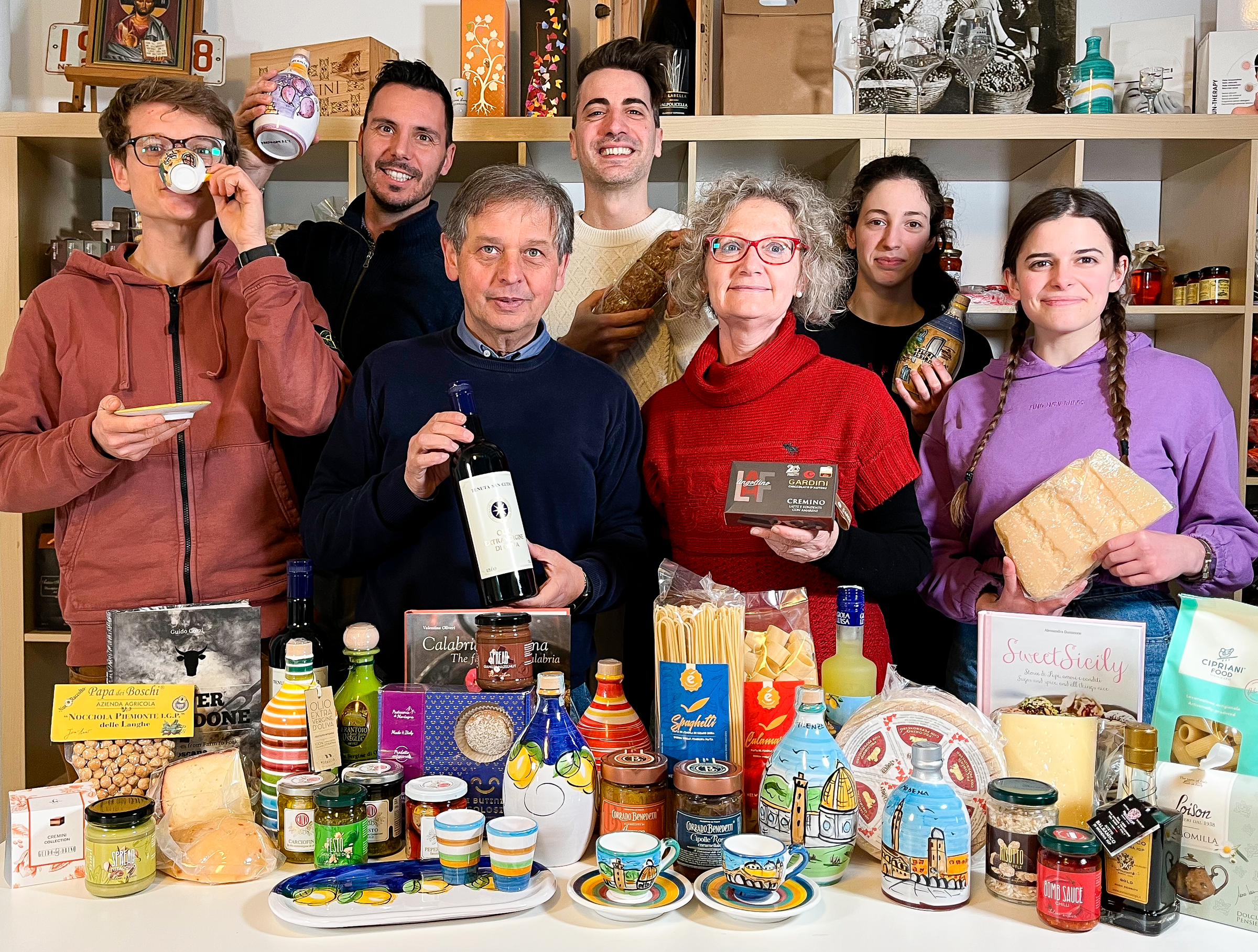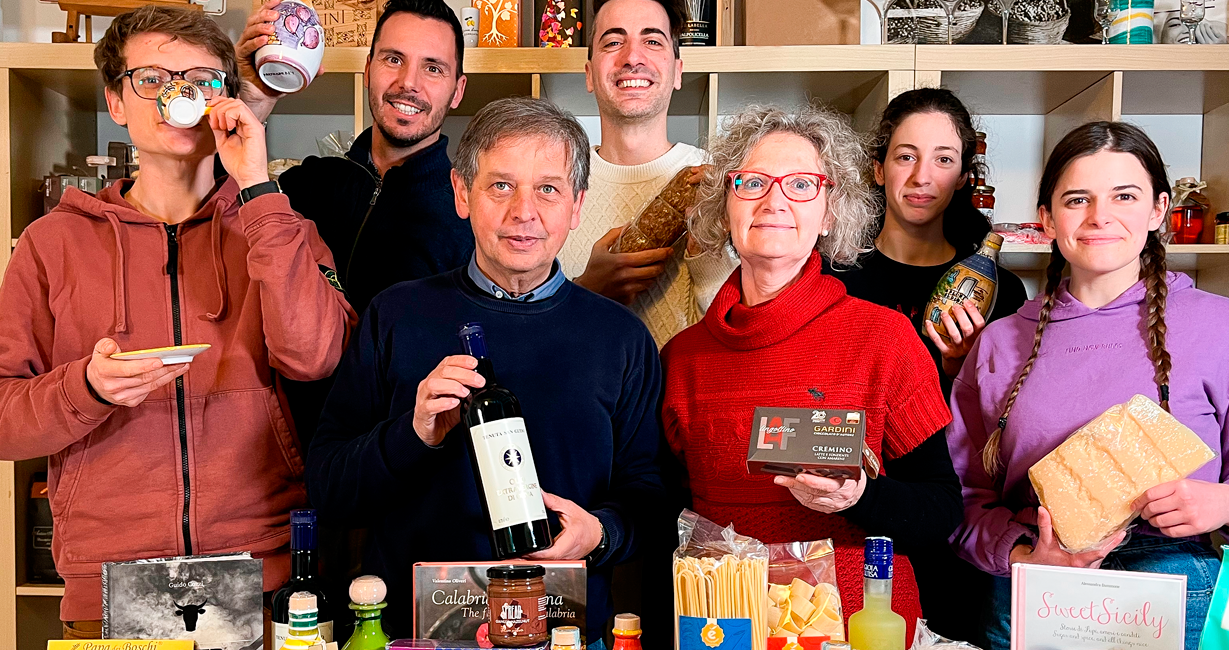Pomodorino di Corbara: Corbara Tomato Perfection
Shipping Cost
We have two types of products for shipping. Simple Items and Special Care Items (Alcohol and Cured Meats).
| SIMPLE ITEMS | USA | UE | CANADA | AUSTRALIA |
|
Price of parcel |
Shipping Cost $ |
Shipping Cost $ |
Shipping Cost CAD$ |
Shipping Cost $ |
| 0-24,99 $ | 23,90 $ | 14,90 $ | 24,90$ | 30$ |
| 25-68,99$ | 18,90 $ | 14,90 $ | 24,90$ | 30$ |
| 69-119 $ | 16,90 $ | 14,90 $ | 21,90$ | 30$ |
| 119,01 and up $ | Free | Free | Free | Free |
| SPECIAL CARE ITEMS (Alcohol, Cured Meats and Large Items) | USA | UK | AUS |
| Weight of parcel | Shipping Cost $ USD | Shipping Cost £ | Shipping Cost $ USD |
| 0 - 2 kg | 19$ | 19£ | 23$ |
| 2.1 - 3 kg | 21 $ | 21£ | 26$ |
| 3.1 - 4 kg | 35 $ | 35£ | 42$ |
| 4.1 - 8 kg | 45 $ | 45£ | 54$ |
| 8.1 kg and up | Free | Free | Free |
- Low stock - 8 items left
- Inventory on the way
Pomodoro di Corbara is raw Corbara tomatoes preserved in salt and water. It is a great solution for tasty and delicate sauces, and an excellent condiment for long, thin pasta such as spaghetti, linguine and fresh pasta. This sweet tomato brings the tradition of flavor to any table and does not require the addition of salt.
Pomodoro di Corbara comes with a delicate and sugary taste and characterized by low acidity, which gives it a unique flavor. When you cook with Pomodorino di Corbara tomatoes, it will be ready in a few minutes.
Without Pomodoro di Corbara tomatoes, your pantry is not complete because Pomodorino di Corbara tomatoes meet the tradition of Italian flavor. It is nicely packaged in a beautiful jar, making it not only perfect for every home but also as a gift for foodies and just about anyone.
Pomodoro di Corbara tomatoes can make the taste of any food better. When it touches your food, your food will never remain the same!
Italy is the largest European tomato producer, second in the world only to the United States. Campania, then, can certainly be considered the natural and historical home of tomatoes. For this region, the "Pummarola" is not only a product of the earth, but a real food glory, it can be defined without fear of denial a symbol. And it is no coincidence, therefore, that in Campania, there are still typical, niche varieties, little known as the Pomodorino di Corbara or Corbarino.
Corbarino is still cultivated in the traditional way. There are no greenhouses, no water and often no roads. Everything has remained as it once was. This product has brought back the farmers to love their land. We are in the small ancient world of this son of sun and fire.
The Pomodorino di Corbara, or Corbarino is a product of ancient origins, a small tomato in the shape of a bulb. Some say it is the son of the glorious San Marzano, others say it is the father. In any case, this small tomato for preserving, is a product of great excellence, undoubtedly a niche product, produced exclusively on the volcanic soils on the slopes of the Lattari Mountains, in Campania.
General aspects
Among the many local ecotypes, Pomodorino di Corbara or Corbarino, fresh or processed, is the one that stands out for its typical organoleptic and qualitative characteristics.
It is a tomato characterized by indefinitely growing plants and small berries with a predominantly "elongated pear" shape, with a distinct sweet-sour flavour. Various biotypes have been assimilated to the Corbarino type, the selection of which has been carried out over the years by the farmers themselves. They are most likely derived from old varieties for preserving, grown in the area.
The area of origin of Corbarino is that of the slopes of the Lattari Mountains, both on the coastal side (Amalfi Coast, Sorrento Peninsula) and on the internal side (southern border of the Sarno Valley), where the municipality of Corbara is located and on whose hills it has always been traditionally cultivated.
Until recently, Corbarino was grown almost exclusively in hilly areas, without any irrigation subsidies; the products were mainly destined to local markets for fresh consumption or for the artisan production of preserves or as tomatoes for the Serbian, preserved in clusters for winter consumption.
The increase in demand, even outside the local or regional area, and considerable interest from local processors, led to a development of cultivation even in lowland areas, where higher production is obtained, even if with lower quality characteristics.
Nutritional and health aspects
From a nutritional point of view, the compositional profile of tomatoes, in general, is characterized, first of all, by a significant content in some vitamins, in particular, in vitamin C and A: even if this content is not particularly high, compared to other vegetables, the fact that the tomato is one of the most consumed fruit and vegetables makes it one of the main sources of these vitamins (for example, the second source of vitamin C in our country, in order of importance, after orange).
Secondly, the tomato is rich in some minor components with antioxidant activity (i.e. with protective action against the negative effect of free radicals contained in the cells of the human body): mainly carotenoids (in particular lycopene, of which the tomato is the first source in our diet) and phenolic compounds.
These components have been attributed a specific protective action against some chronic diseases widely spread in industrialized countries: recent epidemiological investigations have hypothesized, for example, a protective effect associated with the consumption of raw tomato against different forms of cancer (oral cavity, pharynx, esophagus, stomach, colon) and, in particular, a more specific study has shown a significant correlation between ingestion of foods rich in lycopene (typically tomato and its derivatives) and reduced risk of developing prostate cancer.
To have the best protective effect of carotenoids in the human body it is necessary to take ripe tomatoes, even cooked, accompanied by fatty substances (e.g. olive oil).
Ingredients: Water, Corbarino tomato, Salt.










